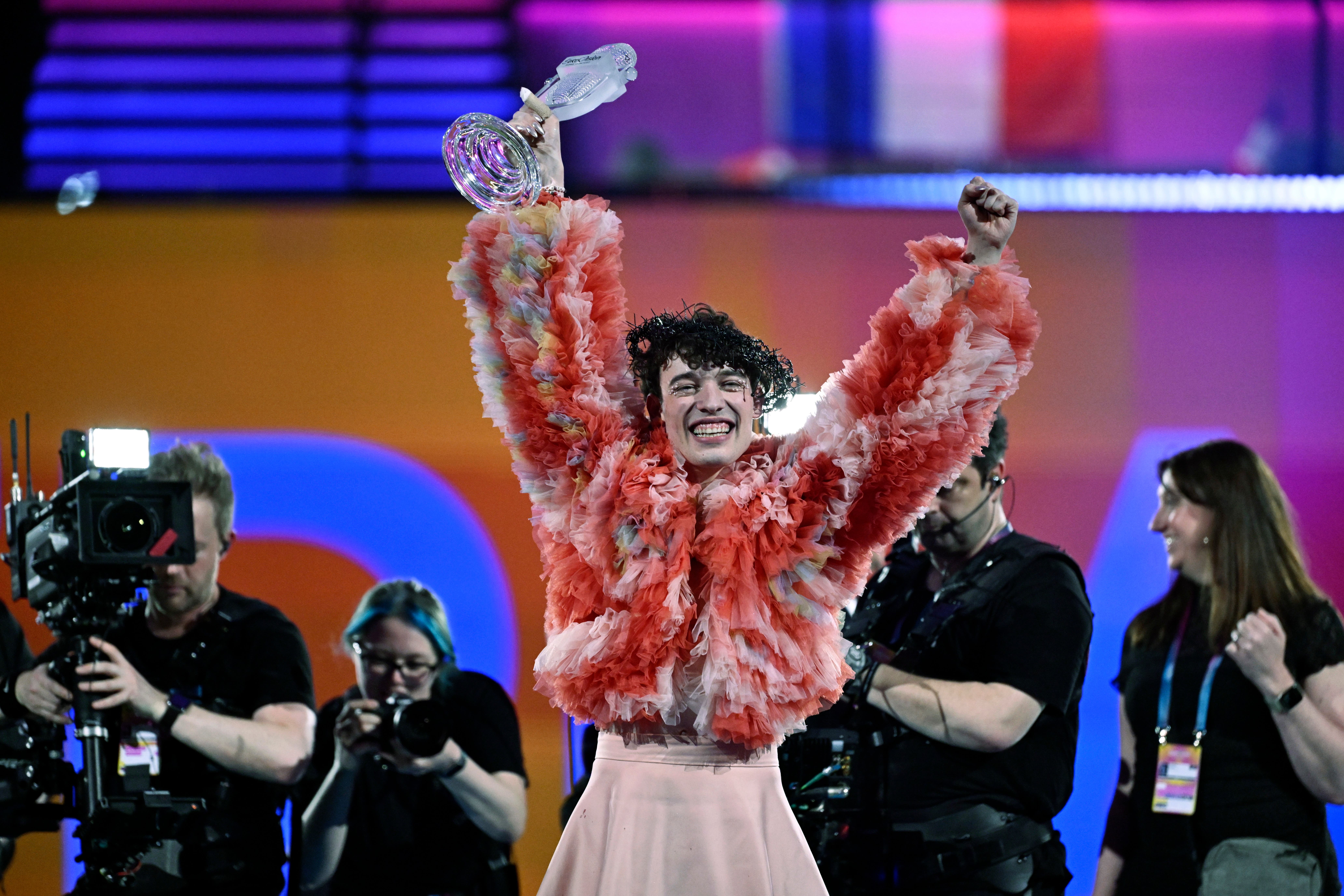In the event, the controversial run-up to this year’s Eurovision didn’t spoil Saturday’s grand final.
The preceding weeks had been dominated by protests against Israel’s participation in the show, with the original lyrics of its song deemed unacceptable by the European Broadcasting Union (EBU) but a rewritten version allowed in. When Eden Golan performed during the semi-final on Thursday, boos rang around the arena but she made it through nonetheless. With protesters marching in Malmo ahead of the final, organisers must have feared a serious interruption. The BBC had reportedly made contingency plans to cut off its live feed were it all to kick off.
By then, the contest had been plunged into a further row, after the Netherlands’ entry was disqualified following claims of intimidatory behaviour. The Dutch broadcaster Avrotros proclaimed itself “shocked” by the decision and refused to read out its national results on the big night.
Yet despite all the prior chaos, the final itself went about as well as the EBU could have hoped. Israel’s performance was booed and cheered in equal measure, and Martin Osterdahl, the EBU’s famed Eurovision boss, also came in for plenty of jeering – but otherwise, peace and harmony prevailed.
That’s all to the good, of course. And Switzerland ended up a worthy winner, with jaunty pop/rap track “The Code” performed beautifully by Nemo.
However, even with the frisson of the various protests hovering in the background, this year’s Eurovision was the one thing it should never be: dull.
Not because the songs were necessarily boring per se. We had Irish occult drama, Swiss snappiness, and a very catchy Croatian number performed by a man who looked like a cross between Adam Ant and an Australian cricketer. If you like Euro pop (and I do, up to a point), there were plenty of decent examples on show.
The problem was more a mix of predictability and polish. Many different musical stylings there might have been, but nothing felt surprising or out of the ordinary (Ireland perhaps came closest with Bambie Thug’s strange witchiness). Entries that aimed to shock did so in ways that were tedious or trying too hard (and mostly involved the display of bare buttocks).
Once upon a time, you could be pretty confident of seeing a handful of really quite dreadful performances – bum notes rather than just bums. Now, everyone is at least serviceable, with perfectly produced backing tracks, impressive staging, and well-thought-out costumes. Estonia’s men in black shouting at each other was about as close as it got to rank badness.
Similarly, the show itself now runs so smoothly. Some of last night’s highlights were the clips of past contests, when the tech failed, or when Bucks Fizz did their skirt thing. But thanks to Eurovision’s resurgence in the last decade, kitsch cheesiness has given way to high gloss. The clunkiness that was part of its charm is no longer present.
This, I suppose, is what comes of being big business. The song contest, through its peaks and troughs, has always had a loyal following, but its profile has soared in recent years. The event itself is now a week-long jamboree, following the introduction of two semi-finals in 2008 (there had been a single semi-final since 2004). Eurovision has become part of the mainstream, as its commercial power has come to be recognised by marketers and sponsors alike.
The shame of it is that the corporatisation of the event has come just when its Europeanness was re-emerging. At the turn of the century, it seemed as if the music was taking its lead from America, but in a second-rate way. That’s no longer the case but, thanks to the overarching glossiness, it feels no less homogenous.
Eurovision has spent its entire existence avoiding politicisation, hard though it’s been this time round. And the glossier it gets, the more it will become a target for political protest.
But the real point of protest should be that very glossiness: bring back the gawkiness, the dodgy vocals, and the failing tech. Otherwise, it won’t just be poor Olly Alexander getting nul points from the public, but Eurovision itself.








Join our commenting forum
Join thought-provoking conversations, follow other Independent readers and see their replies
0Comments